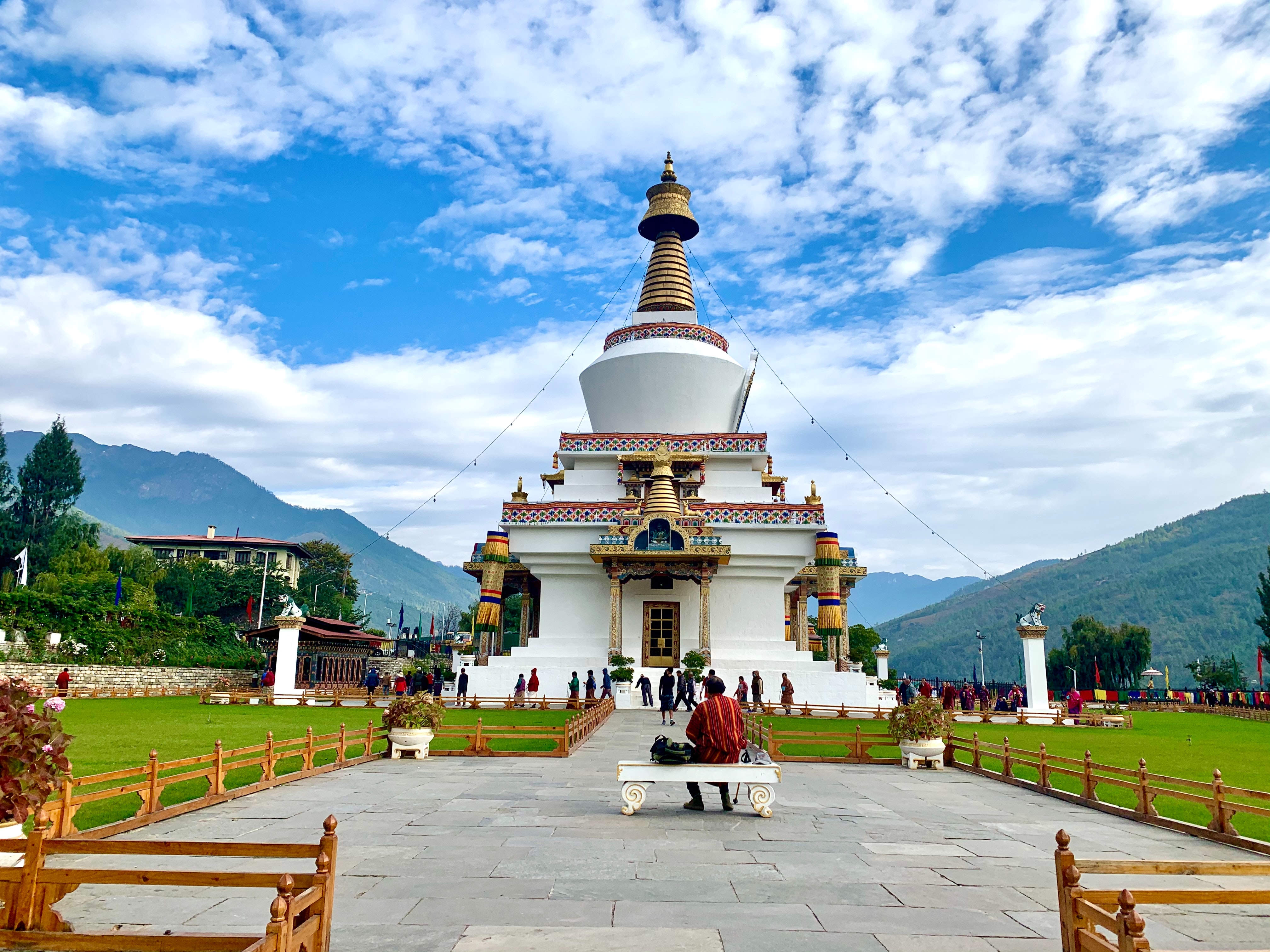Photo by Pema Gyamtsho on Unsplash. An old photo of Memorial Chorten, a popular landmark in Bhutan's capital Thimphu. The coronavirus pandemic has now left the stupa almost deserted.
Thimphu - The Memorial Chorten sits right in the heart of Bhutan's capital Thimphu. It's a popular landmark that attracts thousands of visitors, both locals and tourists alike, every day. But today, like many other popular landmarks in countries around the world afffected by the coronavirus pandemic, Thimphu's Memorial Chorten too wears a deserted look after Bhutan closed its doors to tourists temporarily as part of a series of measures being taken to combat the spread of COVID-19 and with local residents staying home amid the virus scare.
As the countries race to break the transmission chain through extreme but absolutely essential measures, such as complete lockdowns, social distancing and travel restrictions, one thing is becoming increasingly crystal clear. And, that is, this pandemic, which has the world in its grip, is not just a health crisis. It's also a development emergency that is already causing tremendous social and economic impacts.
From tourism to trade, the COVID-19 crisis is affecting the livelihoods of many. It is a testing time for everyone, but more so for the world's most vulnerable countries and population.
In the himalyan kingdom of Bhutan, it's tourism sector remains among the hardest hit. Initial reports indicate that the temporary restriction on tourism has affected the livelihoods of some 50,000 Bhutanese working in the sector, including hoteliers, travel agents and tour guides.
What is the goverment doing?
In response, the government is carrying out a rapid assessment to gain a clearer picture or understanding of the socio-economic impacts of the coronavirus pandemic, particularly on the vulnerable groups so that its ongoing and planned response measures will be better targeted based on data and analysis. The survey is being conducted by the National Statistics Bureau (NSB) in close collaboration with the Gross National Happiness Commission, Ministry of Labour and Human Resources, and Tourism Council of Bhutan.
The month-long assessment will focus on people working in tourism and allied sectors in the four major tourist districts of Thimphu, Paro, Punakha and Bumthang, and the border town of Phuentsholing, which is the main entry point for regional tourists. The findings will help the government design and implement targeted interventions to benefit the most affected and vulnerable individuals.
The data collection began today and will go on until 16th April. The surveyors are collecting the data using real-time data collection tools through interviews with the respondents over telephone and via email in keeping with physical distancing guidelines of the government.
How is UNDP supporting?
UNDP Bhutan is supporting the assessment as a technical lead in close collaboration with UNICEF and other UN agencies in Bhutan and will provide quality enhancement and logistic support drawing from our past global experience in carrying out such impact assessments during crises.
As of now, UNDP, together with UN agencies, is working with governments in 20 countries in the Asia and the Pacific region, during the initial phase of understanding the impact and vulnerability.
“COVID-19 is as much a health and development emergency as it is a human security crisis. This crisis spares no one: everyone is affected. But, those without adequate coping mechanisms will certainly be more affected than others and will be left behind," said Azusa Kubota, the Resident Representative of UNDP Bhutan.
"As the Royal Government rolls out its economic-stimulus package and recovery plan from the COVID-19 crisis, data from such assessment will help ensure that the needs of the most vulnerable will be met in a timely and fair manner. That is why we are responding to the critical demands of the Royal Government now. I hope those requested to participate in the survey will be willing and forthcoming to enrich the analysis.”
UNDP’s support to this crucial assessment is part of a series of our response support aimed at helping Bhutan in effectively responding to the COVID-19 emergency so that the country can build back better, safer and stronger.
As Achim Steiner, the Administrator of UNDP, aptly noted "for vast swathes of the globe, the pandemic will leave deep, deep scars." He called on the international community to ramp up support for vulnerable countries. "Without the support of the international communtiy, we risk a massive reversal of gains made over the last two decades, and an entire generation lost, if not in lives then in rights, opportunities and dignity."

 Locations
Locations

